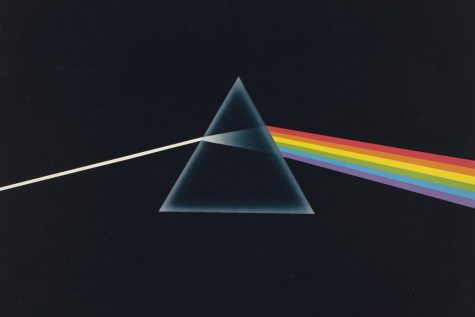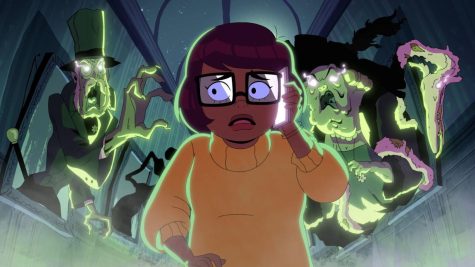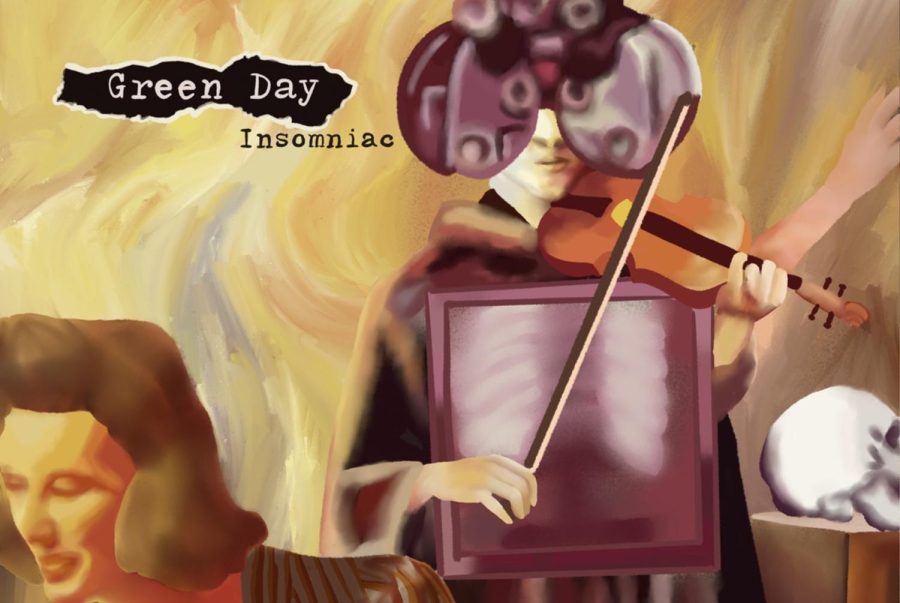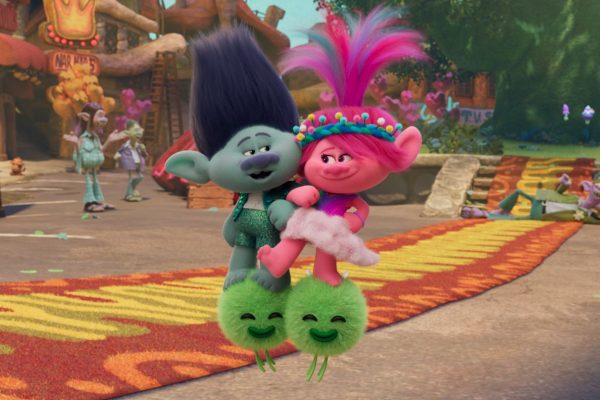Throwback Review: “Insomniac” by Green Day
Green Day is one of the worlds most notable pop punk bands and their album “Insomniac” perfectly reflects that
Though Green Day’s “Dookie” rocketed them into the mainstream — dragging pop-punk from the underground with them — “Insomniac” showed that there was more to the band than snotty punk-rock stereotypes.
Green Day is arguably the face of the pop punk genre, and at the end of 1994, they were at a career high. That February they released their album “Dookie” which would peak at number 2 on the Billboard 200. Their follow-up and fourth studio album, “Insomniac,” would be released on Oct. 10 of 1995, and while still acknowledged as a fantastic album, would lose a lot of acclaim from critics because of its change to a bleaker approach.
A departure from the more lighthearted tone of “Dookie,” this album was noticeably darker lyrically. It tackles feelings of abandonment, feeling lost, anger, panic, and alienation, and with this lyrical exhibition came a less enthusiastic critical reception from general audiences.
However: looking back on it now, knowing what to expect, I find the dark themes welcome. Highlights include “Brain Stew,” “Brat” and “No Pride” that all convey their emotions with an anticipated expertise from the pop punk veterans. Additionally, this album acts as a reaction to some of the negative reception to “Dookie” coming from purists of the genre, as the band was being labeled “posers” who abandoned their roots. I think, however, that this album is as punk as it gets, and it is reflected in the lyrics.
On “Insomniac,” frontman Billie Joe Armstrong prioritizes energy and emotion more than he has on previous records (a theme that would continue into all parts of the album.) On songs like “Jaded”, “Brain Stew” and “Panic Song” the feelings of anger, resentment, exhaustion, and fear are conveyed expertly through Armstrong’s vocal inflections and sometimes sarcastic tone. The almost humorous “life sucks but it’s whatever” approach to his own pains and emotions are perfect for this album, and make the vocal performance a highlight.
All of the aforementioned emotions are even better reflected in the instrumentation. If done incorrectly, the pop punk sound can be repetitive. Same power chords, same drum patterns, but with this album Green Day manages to experiment with it and make it unique. Particularly the synergy between lyrics, vocals, and production has its shining moment on “Panic Song.” True to the name, the guitar and drums are fast and droning, leading to a claustrophobic and anxious feeling to the sound. Priority was placed on energy when recording. Fast and loud, and the band achieved this and then some.
Despite its controversial rollout (including vulgar singles, and problematic music videos in the case of “Geek Stink Breath”) the album is currently two times platinum in the United States. While not having the same airplay or sales as other records by the band, I think this album deserves appreciation for being a real representation of what the band was at the time. Uninhibited by critics and reception. If you are looking for a dark, raunchy, and loud batch of music, this is definitely your go to — a must listen for any Green Day fan or 90’s rock enthusiast.



















